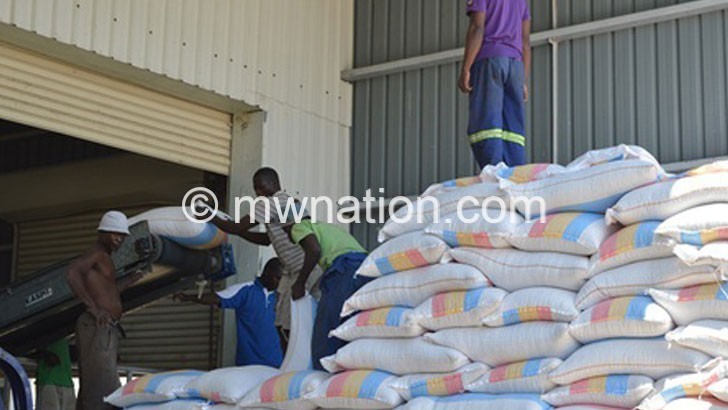Food imports doubled in 20 years—report
The country’s value of food imports doubled between 1998 and 2018, signifying the country’s huge overdependence and reliance on foreign-made food products during the two decades under review, a latest study on food imports shows.
The study conducted by Malawi Agriculture Policy and Advancement Agenda (Mwapata) shows that the value of food imports alone surged by about K18 billion to K44 billion during the review period.

Between 2015 and 2016, for instance, there was an upsurge in food imports of about 64 percent while food exports grew by only two percent in the same period, the study shows.
Food imports form part of the overall national merchandise import basket whose value for many years has been hovering above that of exports basket.
According to the study, the upsurge in food imports resulted in a food trade deficit of K10.1 billion ($13.59 million) in 2016 and K10.8 billion ($14.58 million) in 2017.
Reads the report in part: “Classifying imported commodities by end-use broad economic categorisation shows that importation of food and beverage both primary and processed constituted about 80 percent of food imports between 2010 and 2018.
“This finding implies that much of the food imports in Malawi are for direct consumption as opposed to imports of intermediary commodities to be used as inputs for the production of other food products.”
Malawi’s dependence on food imports not only renders the country vulnerable to volatile prices and increased national debt, but also contributes to food insecurity in the case of an abrupt increase in world food prices.
In addition, the country has also been losing a lot of foreign exchange as a result of food imports, which consequently piles more pressure on the kwacha as demand for foreign currency outstrips available supply.
The study found that the bulk of Malawi’s food imports comes from South Africa, Russian, Malaysia, Zambia and Canada.
However, with respect to cereal imports, the majority of wheat imports come from outside Africa (Europe and the Americas and Oceania) while maize imports are typically from Southern African Development Community such as South Africa, Mozambique and Zambia].
Malawi Confederation of Chamber of Commerce and Industry chief executive officer Chancellor Kaferapanjira said on Tuesday that the rising imports between 2015 and 2016 could be attributed to the floods, which the country experienced during the review period.
“As such, there was a lot of donor intervention, which resulted in more food being imported into the country to assist displaced households,” he said.
The rising imports are coming at a time Malawi, through the National Export Strategy (NES II) is aspiring to increase exports as a percentage of gross domestic product from 14.6 percent to 18 percent , amid a widening trade deficit.
The trade gap, which exists on the back of the country having strategies Malawi Growth and Development Strategy (MGDSIII) and Buy Malawi Strategy to ensure import substitution.





